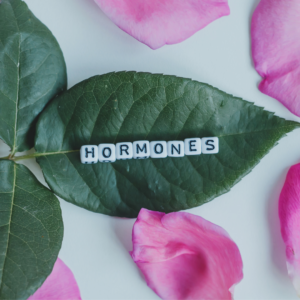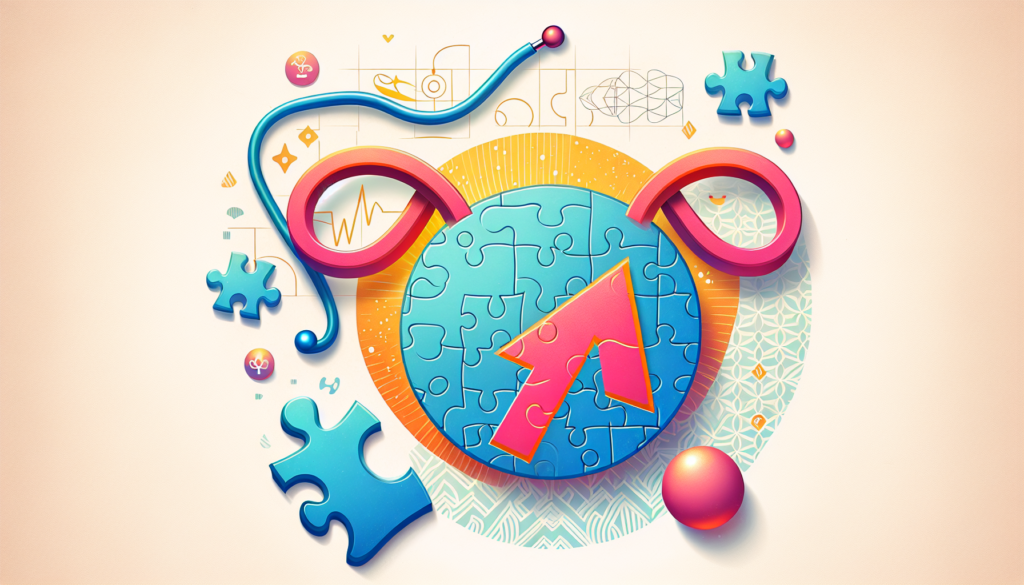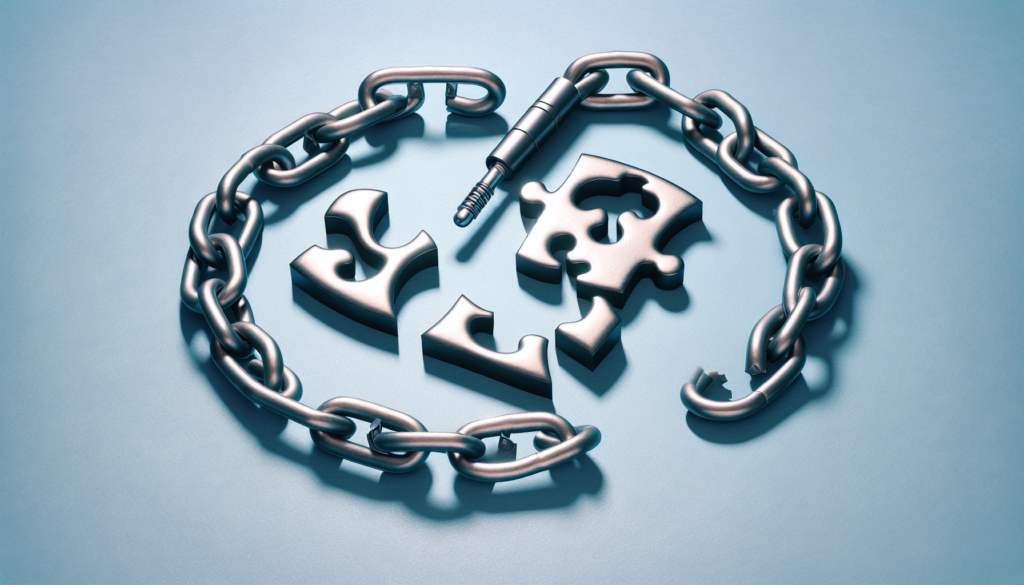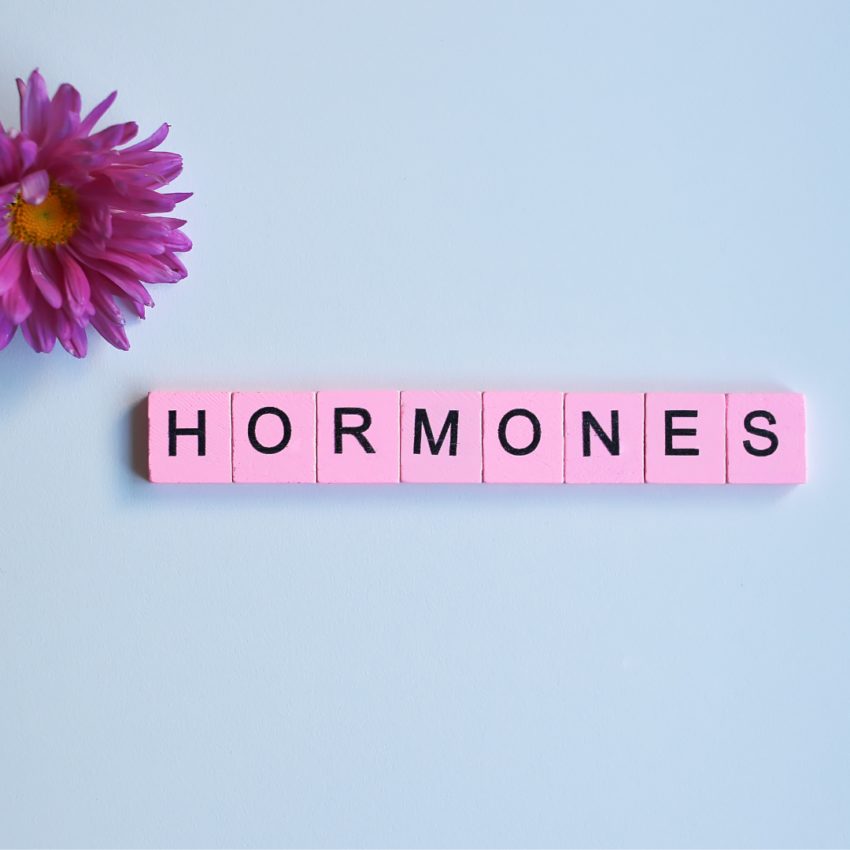Are you struggling with hormonal imbalances and wondering if there are alternative therapies to help alleviate your symptoms?
Look no further!
This article explores the possibility of alternative therapies for hormonal imbalances and aims to provide you with valuable insights into potential solutions. So, if you’re curious about natural approaches and want to discover new ways to regain hormonal balance, keep reading to find out more.

What are Hormonal Imbalances?
Hormonal imbalances refer to disruptions in the normal functioning of the endocrine system, which is responsible for producing and regulating hormones in the body. Hormones are chemical messengers that play a crucial role in various bodily functions, including metabolism, reproduction, growth and development, mood regulation, and more. When there is an imbalance in hormone levels, it can lead to a wide range of physical and emotional symptoms.
Definition of Hormonal Imbalances
Hormonal imbalances can occur for various reasons, such as stress, genetics, aging, certain medical conditions, and lifestyle factors. These imbalances can affect both men and women, although they are more commonly associated with women due to fluctuations in estrogen and progesterone levels during the menstrual cycle and menopause. It’s important to remember that hormonal imbalances can impact individuals of all ages and genders.
Causes of Hormonal Imbalances
There are several potential causes of hormonal imbalances. For women, common causes include pregnancy, menopause, polycystic ovary syndrome (PCOS), and hormonal contraceptive use. In men, hormonal imbalances may be caused by conditions such as hypogonadism or testicular dysfunction. Other factors that can contribute to hormonal imbalances in both sexes include chronic stress, poor diet, lack of exercise, obesity, certain medications, and underlying medical conditions like thyroid disorders or diabetes.
Symptoms of Hormonal Imbalances
Physical Symptoms
Hormonal imbalances can manifest in various physical symptoms that vary depending on the specific hormones involved and the underlying cause. In women, symptoms may include irregular menstrual cycles, heavy or painful periods, hot flashes, night sweats, breast tenderness, weight gain, hair loss, and acne. Men may experience symptoms such as erectile dysfunction, reduced libido, loss of muscle mass, fatigue, and increased body fat. Both genders can also experience symptoms like fatigue, headaches, sleep disturbances, changes in appetite, and digestive issues.
Emotional Symptoms
Alongside physical symptoms, hormonal imbalances can also have a significant impact on emotional well-being. Mood swings, irritability, anxiety, depression, and difficulty concentrating are common emotional symptoms experienced by individuals with hormonal imbalances. These emotional changes can further exacerbate the physical symptoms and have a negative impact on overall quality of life.

Conventional Treatment Options for Hormonal Imbalances
Conventional treatment options for hormonal imbalances typically involve addressing the underlying cause while managing specific symptoms. Here are some commonly used approaches:
Hormone Replacement Therapy (HRT)
HRT involves the administration of synthetic hormones to supplement or replace the natural hormones that the body is not producing in sufficient quantities. This treatment can be beneficial in managing symptoms associated with menopause or other hormonal deficiencies, but it may come with potential risks and side effects, so it is important to discuss it with a healthcare professional.
Medications
Certain medications, such as oral contraceptives, anti-androgens, and thyroid medications, may be prescribed to regulate hormone levels and alleviate specific symptoms. However, medications may also have potential side effects and may not address the root cause of the hormonal imbalance.
Surgery
In some cases, surgical interventions may be necessary to manage hormonal imbalances. For example, in women with severe symptoms of endometriosis or certain types of hormone-related cancers, surgical removal of the affected tissues or organs may be recommended. Surgical options should be carefully considered and discussed with a healthcare provider.
The Role of Alternative Therapies
Alternative therapies, also known as complementary and alternative medicine (CAM), offer additional treatment options for hormonal imbalances. These therapies may focus on a holistic approach that takes into account the interconnectedness of the mind, body, and spirit to promote overall well-being.
Complementary and Alternative Medicine (CAM)
Complementary and alternative medicine encompasses a broad range of therapeutic practices that are not typically part of conventional medicine. These include practices like acupuncture, herbal medicine, dietary supplements, mind-body techniques, and more. CAM approaches can be used together with conventional treatments to enhance their effectiveness or as standalone therapies.
Holistic Approach in Treating Hormonal Imbalances
A holistic approach to treating hormonal imbalances acknowledges that imbalances in one area of the body can affect other areas as well. By addressing the root causes of hormonal imbalances and promoting overall balance and wellness, holistic therapies aim to restore harmony to the entire system. This approach often involves lifestyle and dietary changes, stress reduction techniques, and natural interventions.
Alternative Therapies for Hormonal Imbalances
Acupuncture
Acupuncture is an ancient Chinese practice that involves inserting thin needles into specific points on the body to stimulate energy flow and restore balance. It is believed to help regulate hormonal levels by promoting circulation, reducing stress, and activating the body’s natural healing mechanisms. Acupuncture has been found to be effective in managing symptoms associated with hormonal imbalances, such as hot flashes, mood swings, and menstrual irregularities.
Herbal Supplements
Herbal supplements can be used to support hormonal balance and alleviate symptoms associated with hormonal imbalances. Certain herbs, such as black cohosh, chasteberry, dong quai, and maca root, have been traditionally used to support female reproductive health and hormonal balance. It’s important to consult with a qualified herbalist or healthcare provider before starting any herbal supplementation.
Diet and Nutrition
A healthy diet and proper nutrition are essential for maintaining hormonal balance. Certain foods can help support hormone production and metabolism, while others can disrupt the endocrine system. Incorporating a variety of whole foods, including fruits, vegetables, lean proteins, and healthy fats, can provide the necessary nutrients for hormone regulation. Additionally, reducing processed foods, sugar, and caffeine intake may be beneficial.
Exercise and Physical Activity
Regular exercise and physical activity contribute to overall physical and emotional well-being, which can help regulate hormone levels. Engaging in activities such as cardiovascular exercise, strength training, and yoga can improve circulation, reduce stress, boost mood, and support hormonal balance. It’s important to find an exercise routine that suits individual needs and preferences.
Ayurveda for Hormonal Imbalances
Understanding Ayurvedic Medicine
Ayurveda is an ancient Indian medical system that focuses on maintaining balance and harmony in the body, mind, and spirit. It takes into account an individual’s unique constitution, known as doshas, and emphasizes the use of natural remedies, lifestyle modifications, and dietary practices to promote well-being.
Ayurvedic Approaches to Balance Hormones
In Ayurveda, hormonal imbalances are often attributed to an imbalance of the doshas. Treatment strategies may include dietary modifications, herbal remedies, stress management techniques, and lifestyle recommendations tailored to specific dosha imbalances. Ayurvedic practitioners aim to restore balance and optimize overall health to address hormonal imbalances.

Homeopathy for Hormonal Imbalances
Principles of Homeopathy
Homeopathy is a system of medicine based on the principle of “like cures like.” It involves using highly diluted substances derived from plants, minerals, or animals to stimulate the body’s self-healing abilities. Homeopathic remedies are selected based on an individual’s unique symptoms and constitutional factors rather than targeting specific conditions.
Common Homeopathic Remedies for Hormonal Imbalances
Homeopathic remedies for hormonal imbalances are chosen according to a person’s presenting symptoms, emotional state, and physical constitution. Remedies such as Sepia, Lachesis, Pulsatilla, and Natrum muriaticum are commonly used in homeopathy to address hormonal imbalances. It is essential to consult with a qualified homeopath to determine the most appropriate remedy for individual needs.
Naturopathy for Hormonal Imbalances
Core Principles of Naturopathy
Naturopathy is a holistic approach to healthcare that emphasizes the body’s inherent healing abilities. It integrates natural therapies, lifestyle modifications, and dietary interventions to support overall health and treat specific conditions. Naturopathic practitioners focus on identifying and addressing the underlying causes of hormonal imbalances to promote optimal wellness.
Naturopathic Treatments for Hormonal Imbalances
Naturopathic treatments for hormonal imbalances may include dietary changes, nutritional supplements, herbal medicine, stress management techniques, detoxification protocols, and other natural interventions. By addressing diet, lifestyle, and environmental factors, naturopathic therapies aim to restore hormonal balance and promote long-term well-being.

Mind-Body Therapies for Hormonal Imbalances
Meditation and Mindfulness
Practicing meditation and mindfulness can have a profound impact on hormonal balance and overall well-being. These techniques help reduce stress, regulate emotions, improve sleep, and enhance self-awareness. By calming the mind and promoting relaxation, meditation and mindfulness can positively influence hormone levels and mitigate the symptoms associated with hormonal imbalances.
Yoga and Tai Chi
Yoga and Tai Chi are mind-body practices that combine physical postures, breathing exercises, and meditation. These ancient practices help improve flexibility, strength, balance, and mental clarity. Regular practice of yoga and Tai Chi can support hormonal balance by reducing stress, promoting relaxation, and enhancing overall physical and emotional well-being.
Stress Management for Hormonal Imbalances
Identifying and Managing Stress
Stress can significantly impact hormone levels and overall well-being. Identifying and managing stress is crucial for maintaining hormonal balance. Recognizing stress triggers, implementing effective coping strategies, practicing self-care, and seeking support from friends, family, or professionals can help reduce stress levels and mitigate its negative effects on the endocrine system.
Stress Reduction Techniques
Various stress reduction techniques can be beneficial in managing hormonal imbalances. These may include deep breathing exercises, progressive muscle relaxation, aromatherapy, journaling, spending time in nature, engaging in hobbies, and practicing relaxation techniques like guided imagery or biofeedback. Experimenting with different techniques can help identify the most effective stress reduction strategies for individual needs.
In conclusion, hormonal imbalances can significantly impact an individual’s well-being and quality of life. While conventional treatment options are available, alternative therapies offer additional approaches to address hormonal imbalances. Practices such as acupuncture, herbal supplements, dietary and lifestyle modifications, Ayurveda, homeopathy, naturopathy, mind-body therapies, and stress management techniques can assist in restoring hormonal balance and promoting overall health. It is important to consult with qualified practitioners and healthcare providers to create an individualized treatment plan that takes into account the specific needs and circumstances of each person. Remember, there are alternative therapies available to support you in your journey to hormonal balance and well-being.


